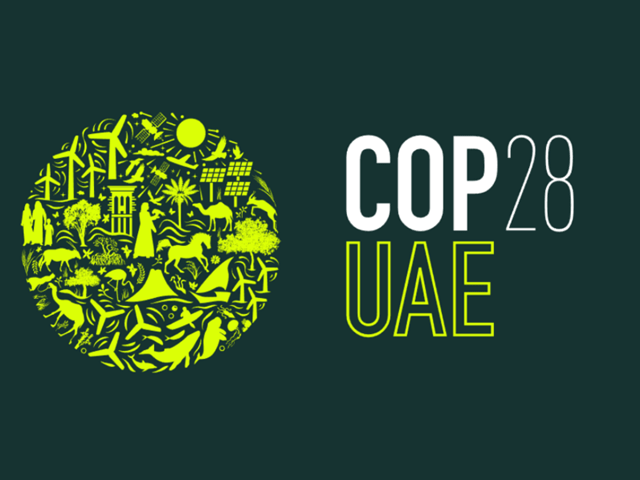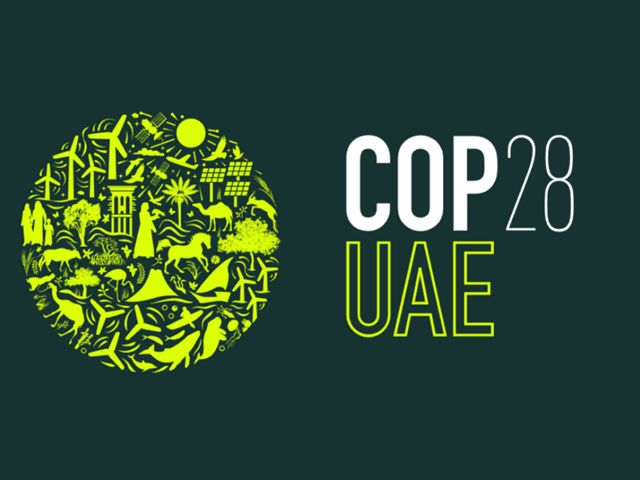Ag Policy Blog
USDA, Ag Groups Focus on Production, Incentives, and the Long Game at COP28
OMAHA (DTN) -- USDA officials and industry stakeholders on Wednesday held a send-off rally for this year's United Nations climate conference to prepare for two weeks of "negotiating, cajoling and convincing" delegates and groups from other countries to come around to the U.S. view that "voluntary, incentive-based" climate-smart farming is the pathway forward for agricultural policy and climate change.
This year's United Nations "Conference of the Parties" -- COP28 -- in Dubai, United Arab Emirates (UAE), opens Thursday and runs until Dec. 12.
COP28 will put more focus on agriculture and food than any of the previous COP events. That includes an entire day, Dec. 10, to focus on the launch of aggressive action -- a "climate policy toolkit for food." The UAE is putting forward the "Emirates Declaration on Resilient Food Systems, Sustainable Agriculture, and Climate Action," which expects commitments from large agricultural countries to commit to new actions that would lower emissions from agriculture and food production.
VILSACK: US AG ALREADY ACTING
Agriculture Secretary Tom Vilsack told USDA staff and a group of industry stakeholders Wednesday that USDA and the Biden administration will show up to the COP laying out a series of investments in conservation and renewable energy. There will be "significant announcements" and commitments that will be hammered out over the next two weeks, he said. Vilsack talked like a coach gearing up for a season opener. The event was at USDA headquarters in Washington, D.C., but also livestreamed.
"You all have worked incredibly hard in agencies and departments across the federal government to come up with a comprehensive U.S. approach to this COP, which I think every American can be proud of," the secretary said, adding, "I'm excited about this COP. I'm excited to talk about the number of things we are doing."
At the heart of the U.S. efforts is the $3.1 million Partnership for Climate-Smart Commodities, which USDA expects will reach as many as 60,000 farmers in the next few years of enrollment. Vilsack pointed to 175 farming practices and more than 90 commodities tied to the program. Along with that goes the $19.5 billion in the Inflation Reduction Act to boost climate-smart practices in USDA's traditional suite of conservation programs.
"America can talk about this and can actually show they are doing it. Many countries can talk about plans they have. We can show what we're doing," Vilsack said.
COP GRUNT WORK: CAJOLING
While Dubai seems exotic on its face, Vilsack told stakeholders Wednesday most of the work is going to be in hotel rooms and the convention center or pavilion rooms. "And you're going to be negotiating, and you're going to be talking, and you're going to be cajoling, and you're going to be convincing and you're going to be dead tired."
A COP meeting typically has three tracks. There's the "presidency track" where the lead country helps spotlight certain themes, which include "food systems" this year. There's the knowledge space -- the pavilions and expos where every group makes their case about what should be done or not done about climate change. An estimated 70,000 people will attend COP28 in some capacity.
P[L1] D[0x0] M[300x250] OOP[F] ADUNIT[] T[]
And there's the policy track where leaders from nearly 200 countries are negotiating their next commitments to lower emissions and help underdeveloped countries address climate change. In agriculture, for instance, there are efforts to get greater commitments to lower emissions, such as methane from livestock. Already, groups and corporations are sending notices of major announcements they plan to make about commitments to reduce emissions.
"These negotiations have implications for what we do domestically and how we do it," said Bill Hohenstein, director of USDA's Office of Energy and Environmental Policy, stressing the outcomes of COP meetings.
FARMER PERSPECTIVE
Ohio farmer Fred Yoder, a veteran of several COPs, also spoke at USDA's send-off event, even though he is not attending this year. He said he is still too busy harvesting corn right now.
"It's the best crop I have harvested in my 50 years of farming," Yoder said. "It's wet, but it's still the best, and I use climate-smart practices."
Yoder, a leader in Solutions From the Land, had a message for USDA and other groups: they need to ensure they put farmers at the center of discussions and focus heavily on productivity and resilience.
"I am a farmer. I know how farmers think, and farmers can push back really hard, very quickly," Yoder said. "So, we have to figure out ways to incentivize farmers to maybe take a look at doing something differently."
MORE US FARMER VOICES
Ernie Shea, executive director of Solutions From the Land, will lead a delegation of nine farmers who will split time at the conference. In an interview, Shea said the gameplan for his group at the COP is always to bring the voice of American farmers to the climate summit to offer a counterweight to some of the more extreme environmental arguments.
"These forums are always platforms where all kinds of actors show up wanting to change agriculture," Shea said. "For many of them, their core message is the food and agriculture system is broken, it is contributing massively to greenhouse gas emissions and we need to turn things around. They typically focus on agroecology as a preferred solution. They shun technology and innovation, and they don't embrace incentive approaches for farmers to help themselves and the planet."
More U.S. agricultural groups are attending the COP events now, which Shea said, "is refreshing and good." The U.S. Farmers and Ranchers Alliance, for instance, has gotten more engaged in recent COP events and is sending a group of board members. The U.S. Soybean Export Council, U.S. Grains Council, the U.S. Dairy Export Council, and the North American Meat Institute are just a few of the groups expected to participate in this year's conference.
"There's a long list," Shea said. "Many of them have events at the COP this year. That's a new piece of the puzzle that more ag groups are showing up, and we welcome that because agriculture is so diverse that we need multiple voices."
A key for U.S. agriculture is incentivizing action rather than prescribing it. "This is where the fault lines start to form," Shea said. "We're there saying follow our guiding principles, while others are there saying we need to impose limits such as restricting livestock in certain areas. There are groups that really take a government-centric, command-and-control approach. We're saying there's a downside to doing that."
PLAY THE LONG GAME
At USDA's pre-COP event, Robert Bonnie, USDA's Undersecretary for Farm Production and Conservation, repeated an emphasis that a growing global population also demands food production and farm productivity are maintained in the climate talks. He also said the U.S. delegation needs to stress that the U.S. gameplan for climate-smart agriculture works.
"We have to prove this voluntary, incentive-based approach can work, and science is critical to that, and being able to measure and monitor and report on our results is critical," Bonnie said.
Bonnie also pointed out that politics in the U.S. creates frequent "pendulum swings," but garnering support from farmers with conservation incentives will help USDA's efforts withstand those pendulum swings.
"We're trying to play the long game here," Bonnie said. "We're trying to create tools now that will be with us for a long time because they're demonstrating results, and they work for farmers, they work for ranchers, they work for forest owners."
Editor's note: DTN is a participant in the Farmers for Soil Health program (www.farmersforsoilhealth.com) funded through a Partnership for Climate-Smart Commodities grant from USDA. Farmers for Soil Health is led by the United Soybean Board, the Pork Checkoff and the National Corn Growers Association.
Also see "COP Leader Wants US Tax Dollars for Green Energy While Making Oil Deals Elsewhere" here: https://www.dtnpf.com/….
Chris Clayton can be reached at Chris.Clayton@dtn.com
Follow him on X, formerly known as Twitter, @ChrisClaytonDTN
(c) Copyright 2023 DTN, LLC. All rights reserved.






Comments
To comment, please Log In or Join our Community .